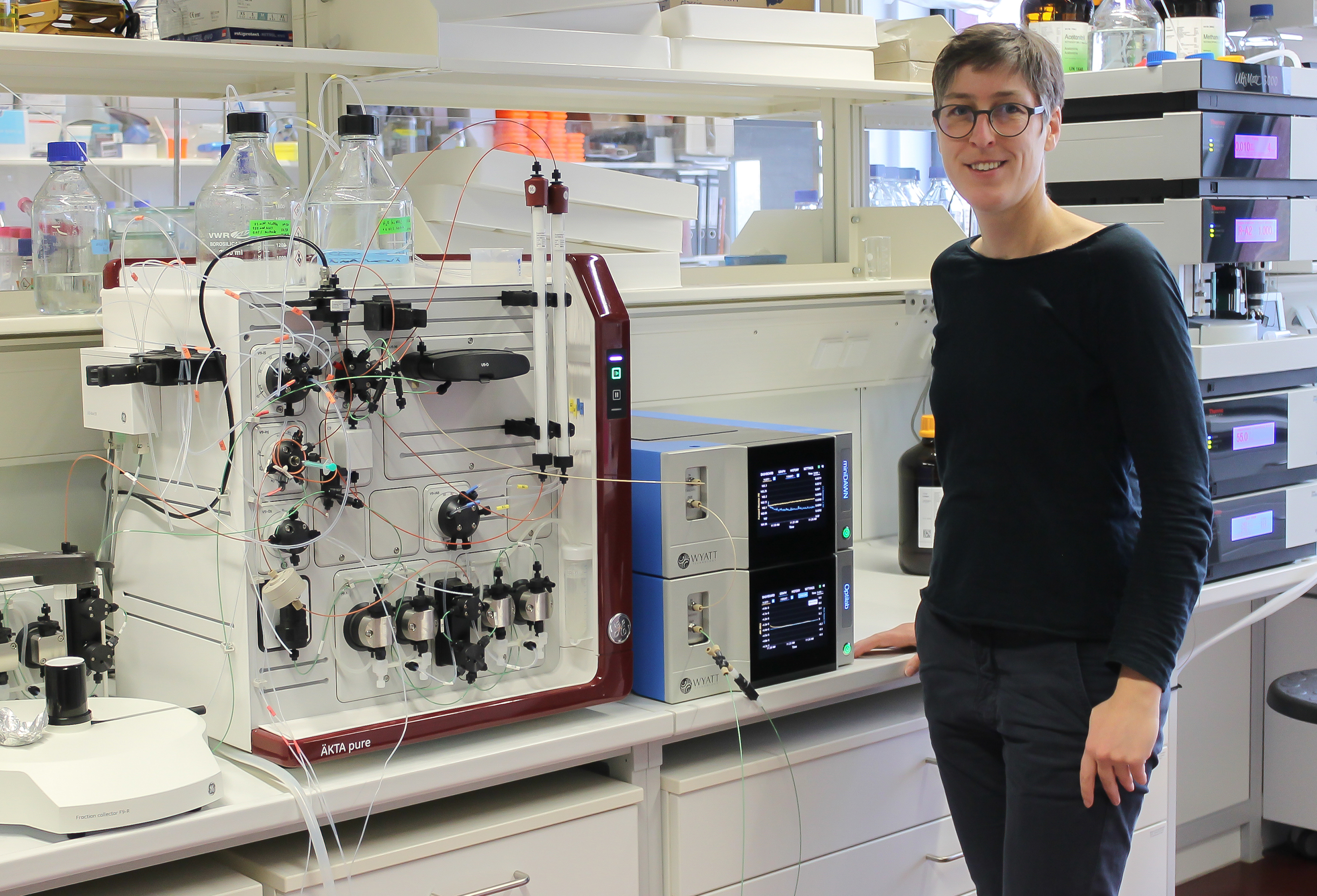
Biosensor Allows Real-Time Monitoring of Auxin in Plants
April 14, 2021| |
Auxin is responsible for many biological processes in plants as it functions as a regulator for the plant's response to external stimuli. Because of this, auxin is located in almost all parts of the plants. The biosensor is based on the Escherichia coli tryptophan repressor and is genetically encoded to the plants. It uses light signals to tell where the auxin is located in the plant's cell tissue. The sensor can monitor the concentrations of auxin at a sub-cellular resolution and their spatial and temporal changes during the lifespan of plants by attending to the graded spatial distribution from the roots to the topmost part of the plant.
"It is to be expected that the new biosensor will uncover many more unforeseen insights into the inner workings of plants and their reaction to external stimuli over the coming years," said Prof. Birte Hocker from the University of Bayreuth. "There is already a great deal of interest in the new sensor, and it is to be expected that optimized variants will be developed over the next few years to enable even better analysis of the diverse auxin-regulated processes in plants," added by Prof. Gerd Jürgens from the Max Planck Institute for Developmental Biology.
For more details, read the press release in the University of Bayreuth and the article in Nature.
| |
You might also like:
- Biosensors for GE Microbe Developed
- Swedish Researchers Develop Biosensors to Boost Agri Production amidst Climate Change
- VIB CRISPR Maize Field Trial Granted Permit
Biotech Updates is a weekly newsletter of ISAAA, a not-for-profit organization. It is distributed for free to over 22,000 subscribers worldwide to inform them about the key developments in biosciences, especially in biotechnology. Your support will help us in our mission to feed the world with knowledge. You can help by donating as little as $10.
-
See more articles:
-
News from Around the World
- Kenya's Agricultural Reforms Set to Bolster Bt Cotton Commercialization
- Genetically Engineered Probiotic Yeast Produces Beta-Carotene
- Experts Encourage Farmers in Pakistan to Plant Bt Cotton
- Bacteria Help Plants Grow Better, Lessen Need for Fertilizer
- Study Shows Effective Zinc Fertilization through Leaves in Wheat
- Biosensor Allows Real-Time Monitoring of Auxin in Plants
- Genome Sequencing of 445 Varieties Reveals Domestication History of Cultivated Lettuce
-
Research Highlights
- Stacked Insecticidal Genes Confer Resistance to Colorado Potato Beetle
-
Plant
- Korean Consumers Prefer Gene Edited Products Over GM, Study Finds
- Researchers Use CRISPR to Prevent Eucalyptus Trees from being Invasive
- MIT and UCSF Researchers Create On and Off Switch for CRISPR
-
Health
- NTU Singapore Sheds Light on Link of COVID-19 and Blood Clot Formation
-
Read the latest: - Biotech Updates (February 18, 2026)
- Gene Editing Supplement (January 28, 2026)
- Gene Drive Supplement (February 22, 2023)
-
Subscribe to BU: - Share
- Tweet

